Staying Safe and Secure in a Digital World

Dear Black Tie community,
Today I want to talk to you about a very serious topic – digital safety.
Take a look at the following page: https://www.facebook.com/B4Real-Buy-Real-Estate-With-Crypto-103568988991493/
Look familiar? Because it shouldn’t.
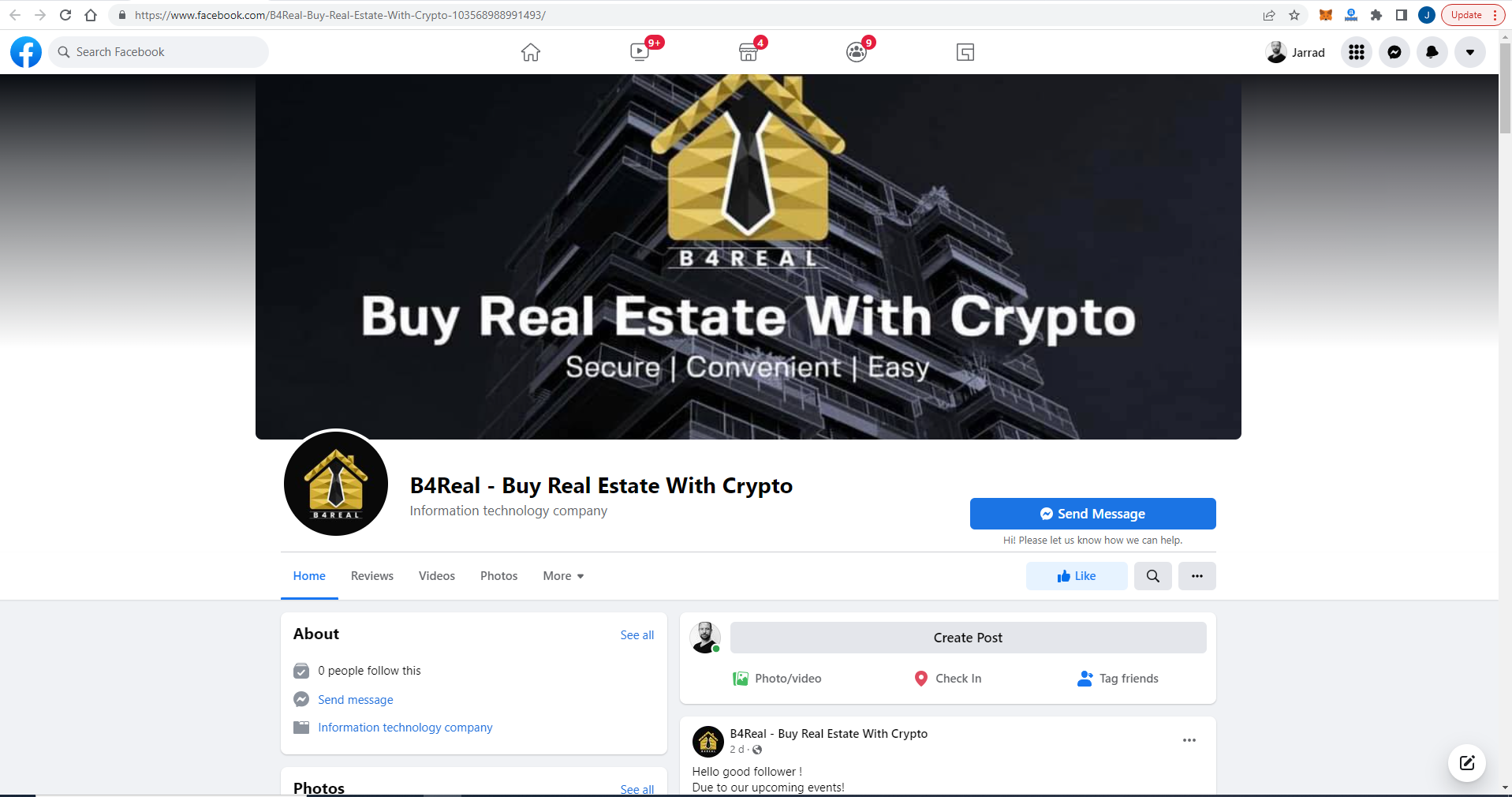
Stop! Impostor!
You can find the real page at https://www.facebook.com/b4realofficial/
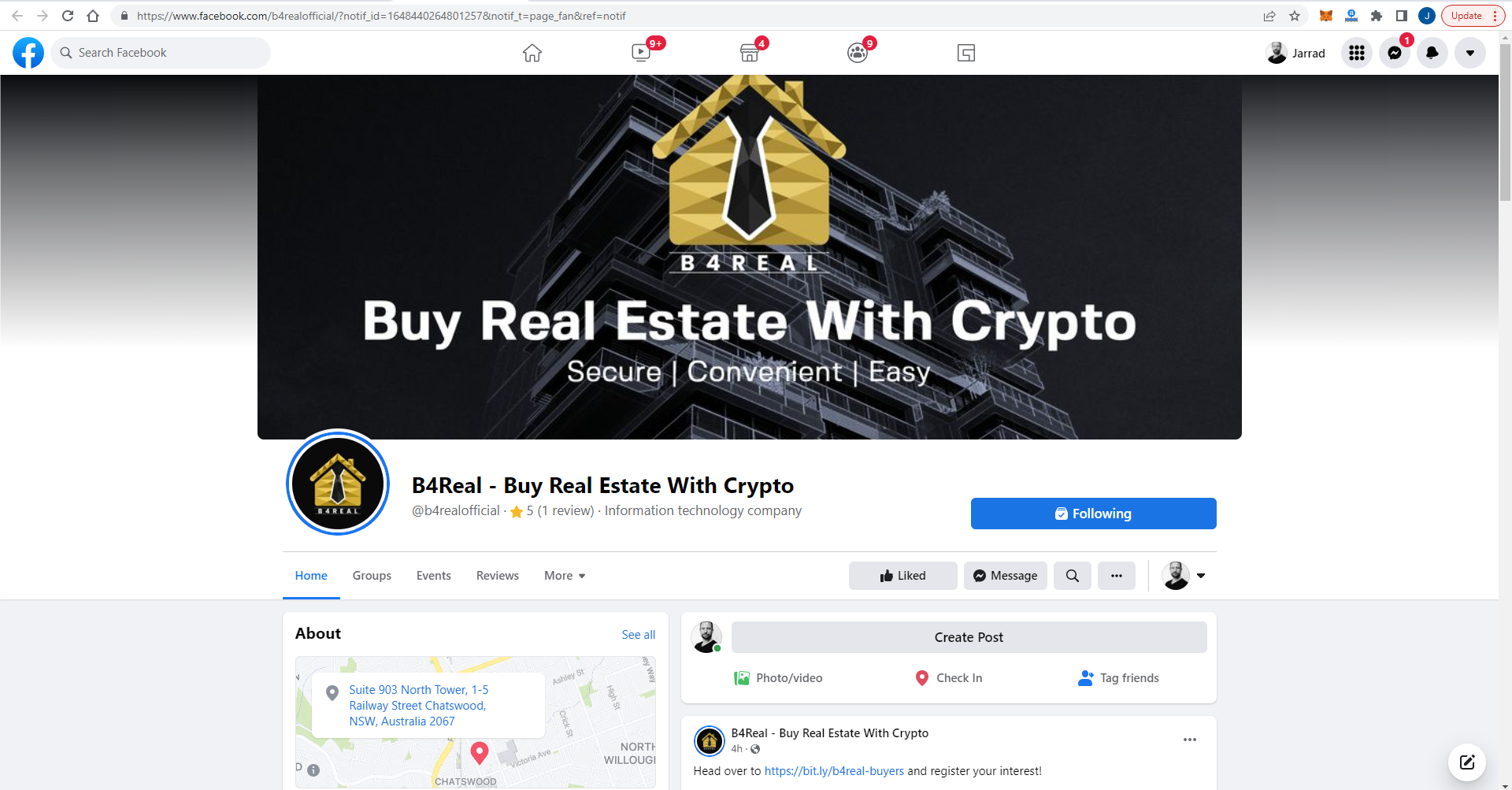
Close, but no cigar...
The first page is a scam page, set up to steal the wallet addresses of our members. They’re promising free airdrops of cryptocurrency like BTC, ETH and BNB – all so they can commit a crime and defraud innocent victims.
We’ve already reported it and are actively working to have it taken down. But today I’d like to share with you some of the common features of scam sites, so you can identify them in the future and stay safe online.
First, though – don’t be scared! Scam artists and conmen have been around since the dawn of civilization. It’s unfortunate, but it’s true. As technology has continued to change and evolve, so have the manner of their scams. But just because you might not be an expert at cryptocurrencies, doesn’t mean you have to be a victim. Just like people learned to not fall prey to telephone scams, mail scams – even betting scams – with just a little bit of information you too can be prepared to identify and avoid these scam artists.
Unsolicited Contact
Take a look at the following Telegram conversation:
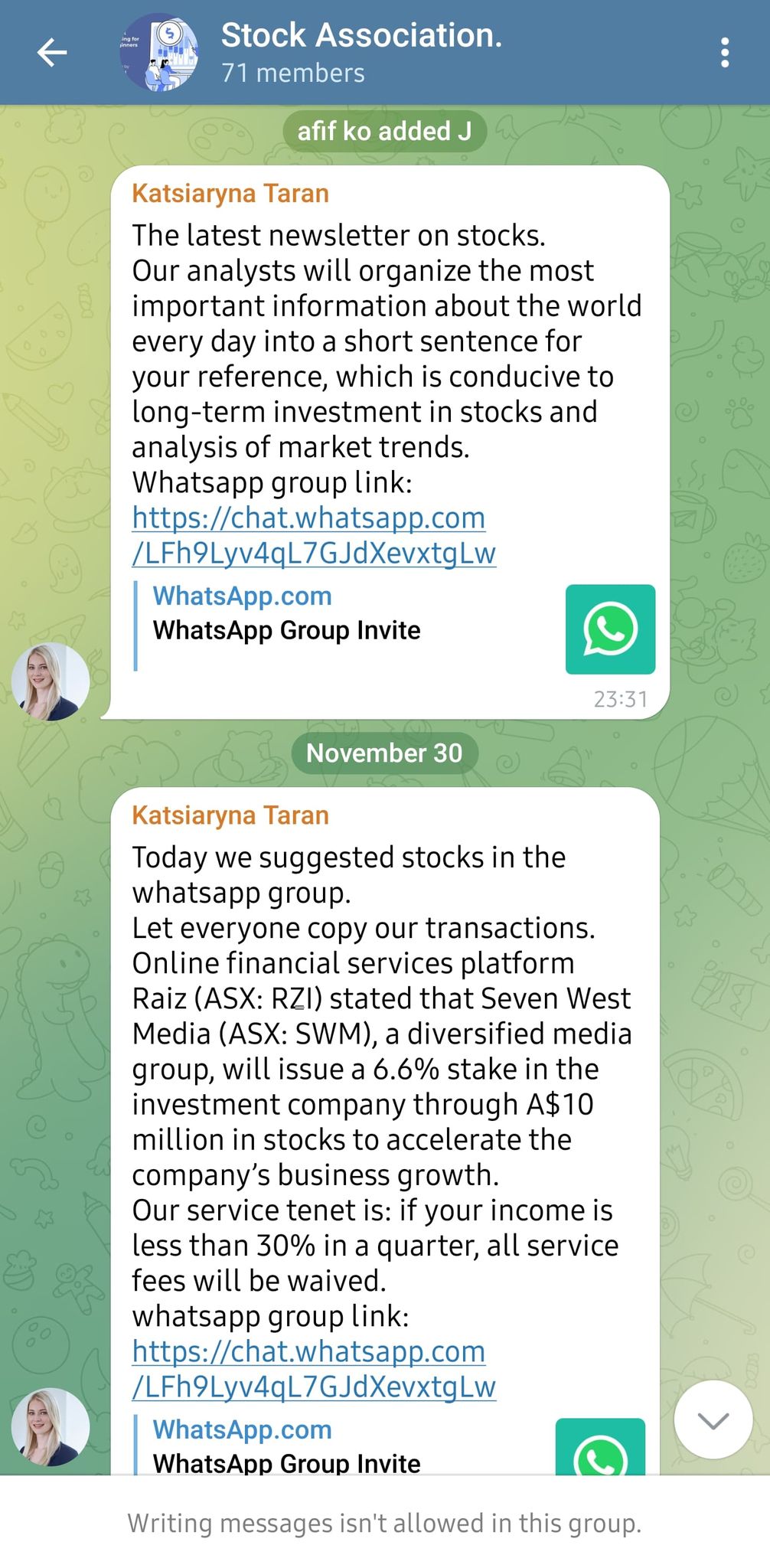
Now, check out what the WhatsApp group looked like:
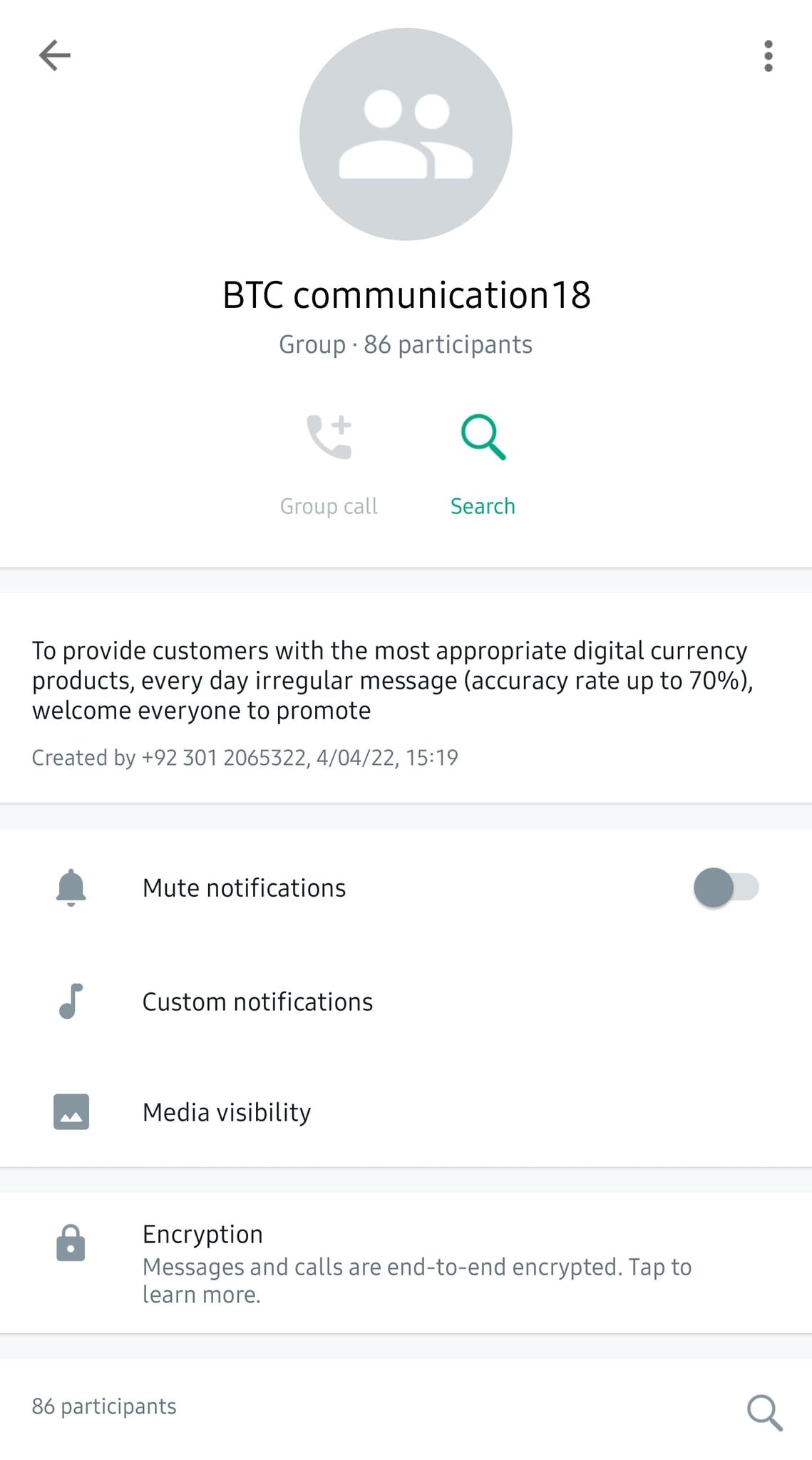
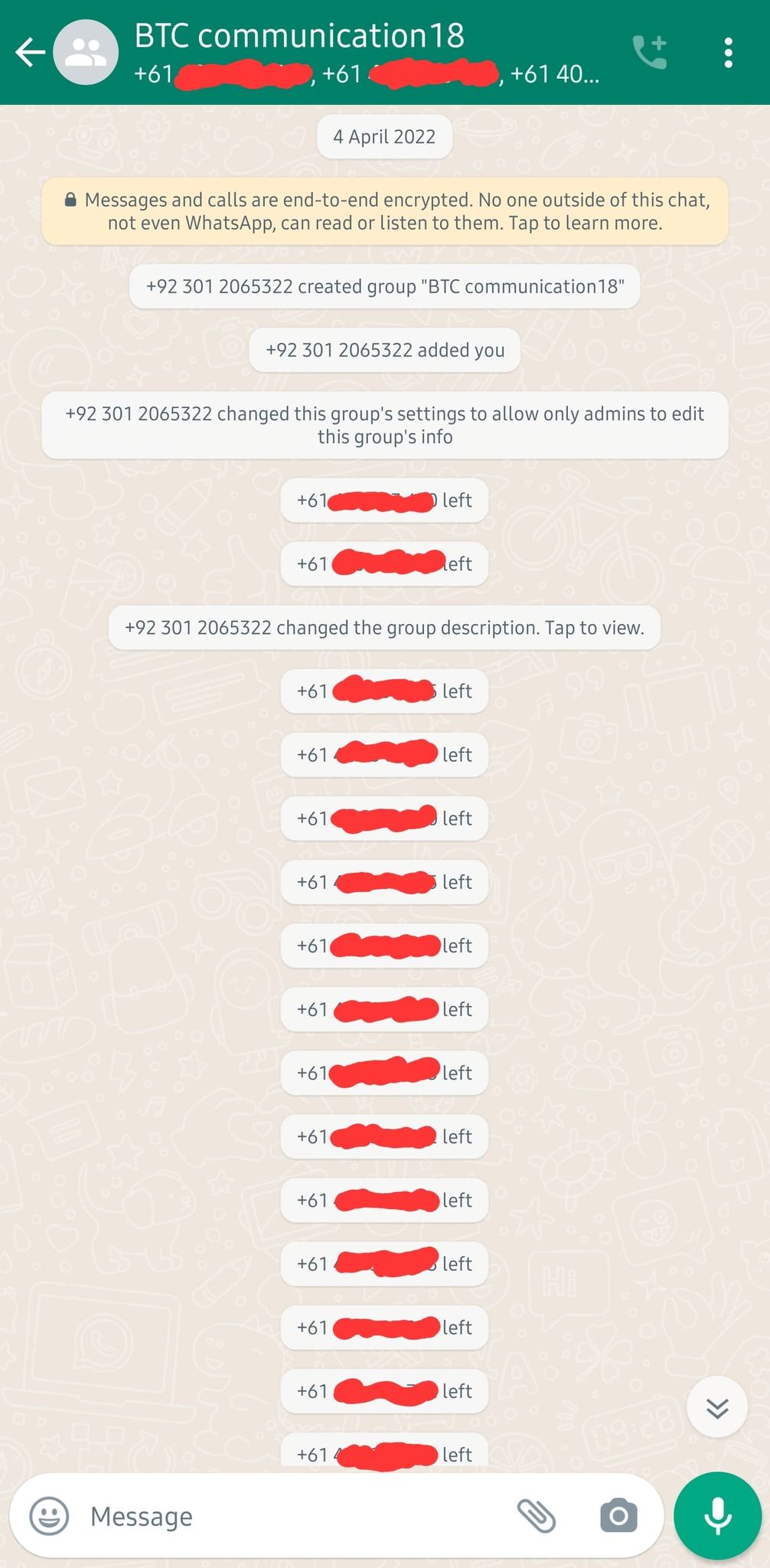
That's at least 15 people who saw through the scam - but that still leaves 86 people still part of the group chat.
If you’ve been added to a group, a chat, or received unsolicited emails, messages or calls – be very careful. It’s highly likely that you’ve been targeted by scammers. Particularly if they’re offering unsolicited investment advice.
Scammers will often harvest data like phone numbers, email addresses and more from all manner of sources. Online competitions, games, surveys - remember that time you answered a few questions about what you thought about the environment, and gave them your number to maybe win a gift voucher? If you didn't check the fine print, your contact details may have ended up for sale.
From there, scam artists will often contact people with unsolicited offers of investment advice, free giveaways, special offers and all sorts of enticements - looking to engage with strangers and find ways to take advantage of their trusting natures.
If you’re not sure – be prepared to walk away.
Poor Spelling and Grammar
Check out the following text, taken straight from the scam/fake B4Real Facebook page:

Hello! Good! FOLLOWER!!!
Does this read like it was written by a professional?
For an even worse example, how about this SMS (you’ve probably seen your fair share of these by now as well):
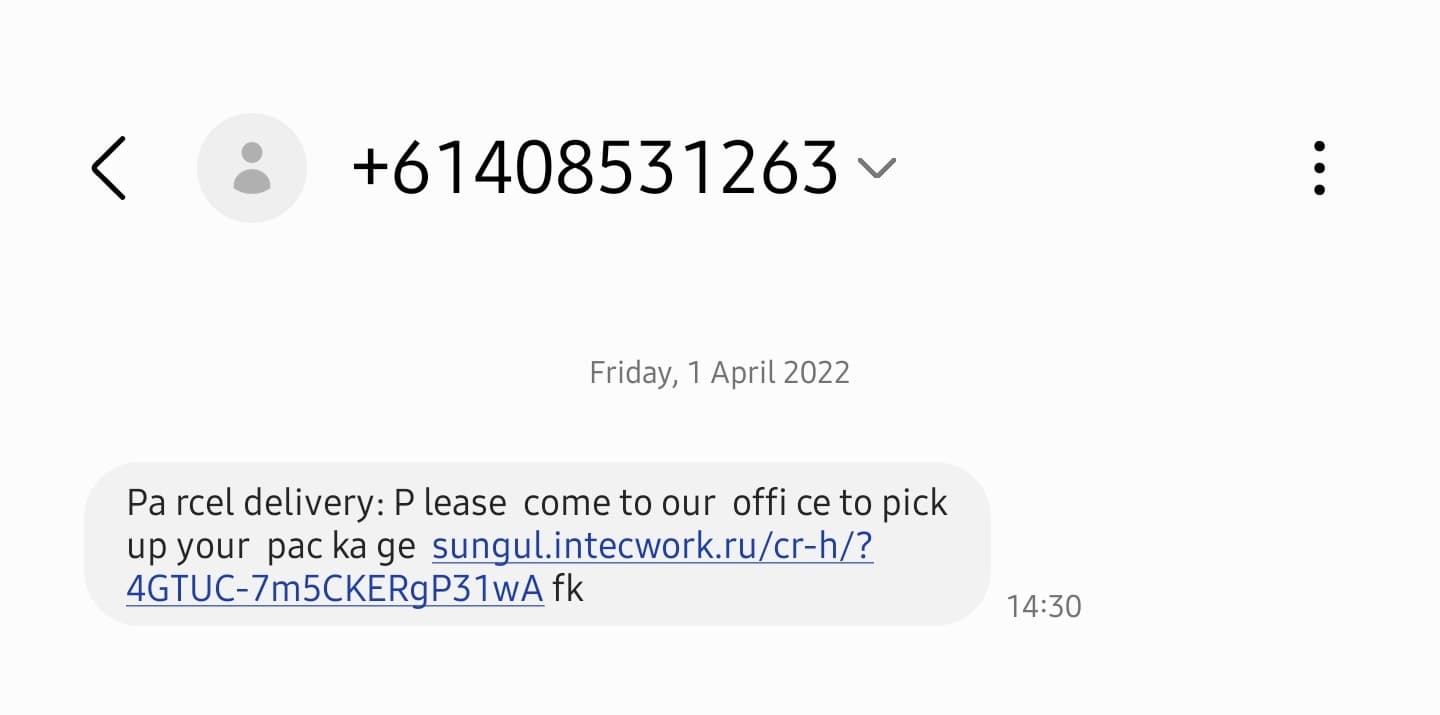
I thought Pac Ka Ge was a Japanese arcade game from the 80's...
Pretty hard to read, right? Unfortunately, most (though not all) scam artists these days come from countries overseas, where English is not the first language. Often, poor spelling and grammar can be your first indication that an email, website, or message isn’t what it claims to be.
Incorrect URL
Here’s the official B4Real Facebook page’s URL (or web address):
https://www.facebook.com/b4realofficial/
And here’s the scam page’s URL:
https://www.facebook.com/B4Real-Buy-Real-Estate-With-Crypto-103568988991493/
See the difference? Because we already had set up our B4Real Facebook page, the scammers had to use a much longer URL, including a string of random numbers at the end.
Some scammers take it even further, by using the original website’s URL inside the scam page’s URL. So, https://www.login.realwebsite.com might be the correct link, but the scammers are able to create https://www.go.login.realwebsite.com – and if you’re not paying attention, you won’t notice the difference.
It can be hard to tell if a website is using the correct URL or not. Heck, even Equifax (the global financial services provider) once sent out a link to a fake version of its website via Twitter! But if you keep your eyes peeled, an unusual URL can be an indicator that you need to do some more investigating.
In short – if something seems off, take the time to check.
Directions to Click on Links
Here’s an important fact to note. If you receive an email that you weren’t expecting (for example, to change your password when you hadn’t requested a password reset), or if you receive an SMS directing you to click on a particular link – it’s probably a scam. Similarly, if you receive a phone call – from someone claiming to be your bank, for example – the correct procedure is for them to ask you to call back on the bank’s phone number, so you can be sure you’re speaking to the right person.
If you’re not certain about an email, message or call you received – say, for example, you’ve received an email from your bank telling you that your account is being deactivated unless you log in – the safest thing to do is to use your app or visit their website using an address that you know is safe, and log in that way (or alternatively, call them on their main phone number). Don’t click on any links inside emails unless you are absolutely certain they’re safe.
The same applies with the scam B4Real page, as well. Here’s a screenshot of the conversation one of our members had with the scammers:
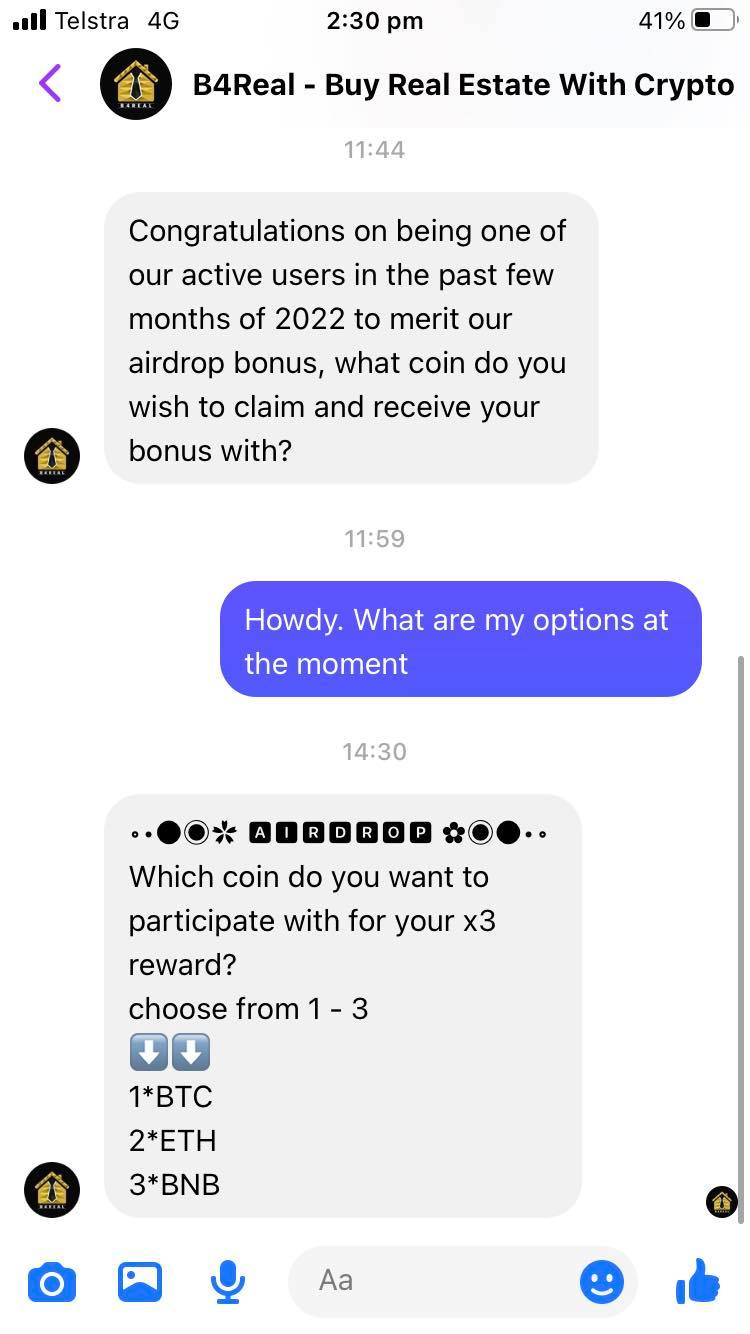
For free? For you? What a deal... NOT!
Fortunately, he was smart enough to figure it out straight away, and let us know about it (thanks, mate!). But if he hadn’t realised, you can be sure that the next step would have been to direct him to visit a website or download an app... which would have almost certainly emptied out his crypto wallet.
No Likes - No Trust
The last one's pretty easy to check. Here's the number of people who've liked the scam page:
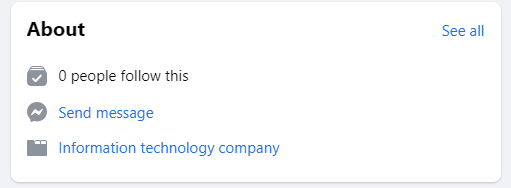
Please don't feel bad for them...
If there are a surprisingly small number of people who've liked or followed a page (or in this case, zero people), you can be fairly sure it's a scam - or at the very least, it's a new and unknown company or poster, and should be treated with extreme caution.
That’s about it for now. Remember, sometimes the presence of just one of these red flags is enough to label something a scam - but if you've noticed multiple red flags flapping in the digital breeze, you know to be on high alert.
With this information, you should now be able to spot most of the common scams that are circulating these days – and forewarned is forearmed! Make sure to stay safe out there, and we’ll be in touch soon!
Sincerely,
The team at Black Tie Digital

.png)
.jpg)